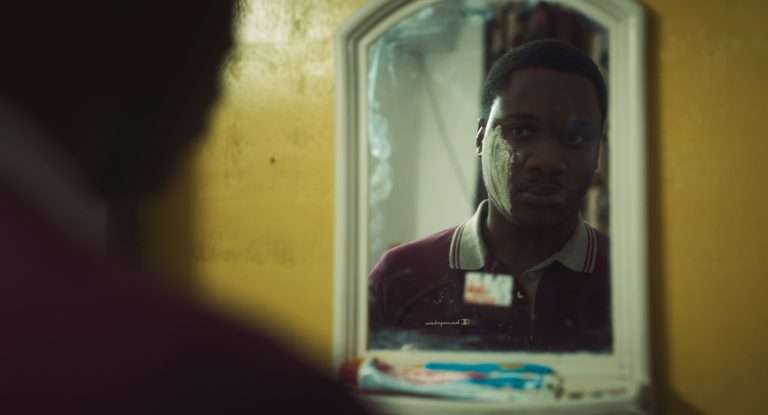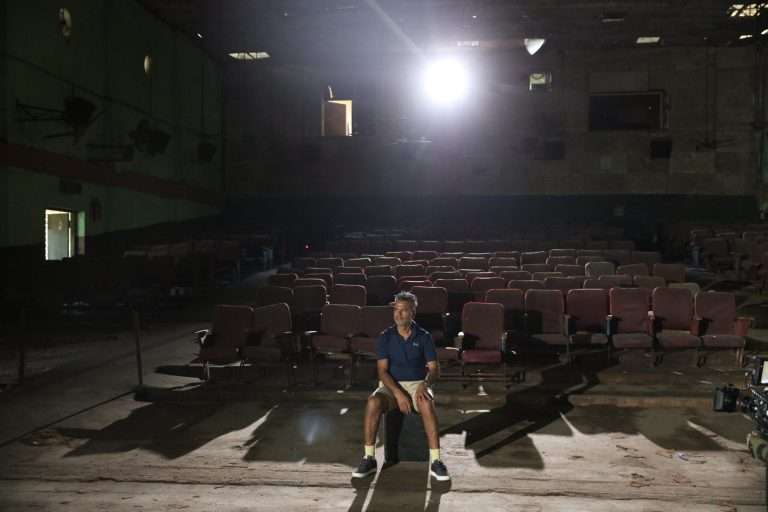Maja Novaković’s “At the Door of the House, Who Will Come Knocking” is an exquisite mood piece, both sonorous and muted. Melancholy is not just in its very bones, but it infuses every fluttering sensation that passes while watching it. There’s a mix of expansive distance, constantly accentuated by the looming landscapes, and an intimacy with the old protagonist, who fiercely keeps to himself. Emin exudes a sense of a life quietly fading away. He is in his seventies when the film introduces him. Novaković does not, however, lay out any of his backstory. What she does at most is scatter through breadcrumbs of cues by which we can make our own assumptions. The pace is slow, deliberate, and trying. Admittedly, it does take some time to sink into the film’s world, which refracts Emin’s guarded psyche through the enveloping natural setting.
Emin is a relentless loner. He shirks company, excusing himself for some later day, which is all but continually deferred. His house is at a desolate remove from any presence of the community. There are signs of a former family life. The wall bears a photograph but it is mottled in cobwebs. The film doesn’t give any markers as to the timeline of the earlier phase when he might have had people around and love existed in the household. Most key details are withheld in this spare documentary, which believes in omission and not elaboration. The style of handling indicates great boldness in the director and a profound trust in the viewer to stick with Emin, even if he is rendered in foggy outlines.
With extraordinary patience and a steady eye, the film unfolds while keeping us in the dark. The lack of conventionally associated backstory doesn’t hinder the emotional investment in the character. The film executes a peculiar pull on him without recourse to dramatic beats, though in a few scenes, the music gets dialed up to a sort of mythic register. The choice makes for a surge in the atmosphere but feels jarringly shoved in.
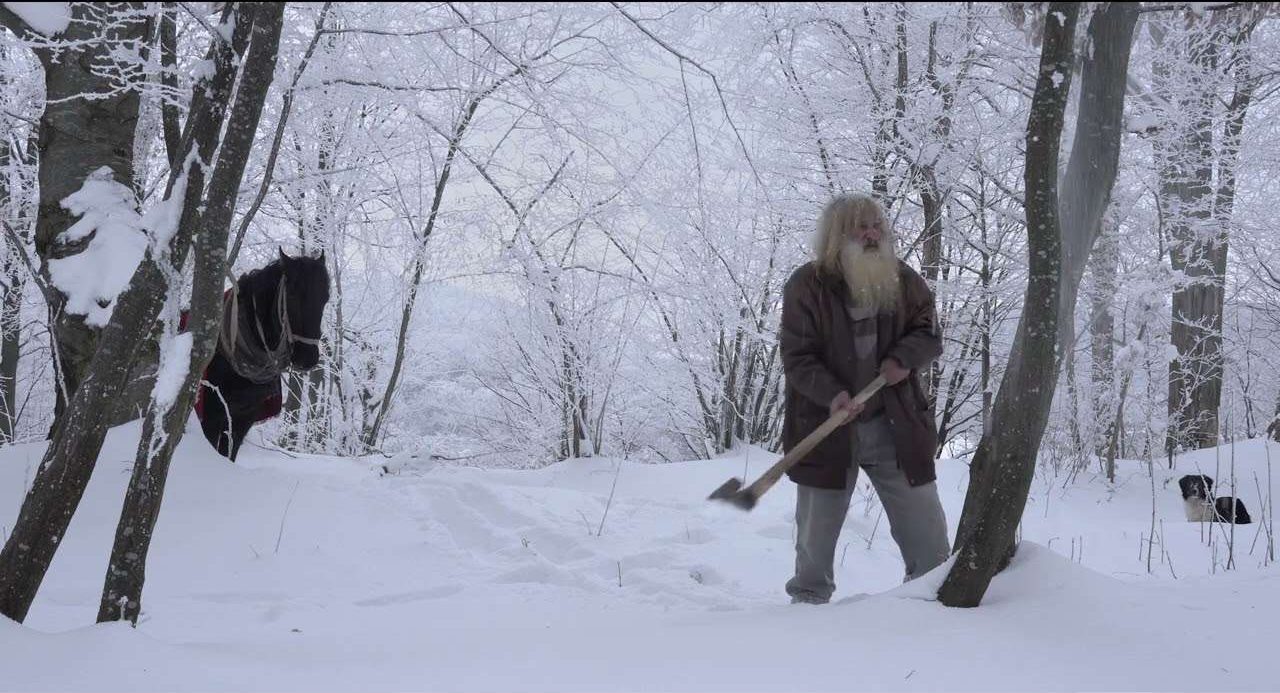
I wondered if it was really necessary because it breaks the otherwise organic fluidity with which the rest of the film has been composed. There might also be a section of viewers who can allege the film is too stiff in its formal distance. Nevertheless, this is indispensable to the film’s hollowed-out quiet and calm. Within the shroud of serenity are interspersed undercurrents of life gradually decaying and waiting out the few days left. It brings a somber finality to every frame shot by the director herself.
Novaković frequently cuts to focus on the minute and the small. The gargantuan-ness of what surrounds Emin is contrasted acutely by these tendencies to go granular as if the camera is scavenging for the man’s hidden, repressed emotional inner life, just like we are attempting to wrench out meaning from the staid, impeccably painterly compositions. In between, a young boy and a girl appear like phantoms. They drift in and out of sequences and through the woods just as Emin lugs around his horse as it trudges through the snow. The horse is his sole companion. Long stretches of the film abandon any crutch of dialogues.
Our attention is fixated wholly on the motions of Emin as he goes about a day, the textures of a carpet whose vibrance ruptures the blanketing whiteness of the surroundings. “At the Door of the House, Who Will Come Knocking” is a meditative, hypnotic film that slowly extends its grip on the viewer. It belies staggering confidence in the singular power and gravity of the image on its own without relying upon reams of exposition or verbalizing a defined narrative. In its looseness a remarkable willingness to make the viewer wander with the protagonist at his own pace, Maja Novaković has crafted a visually rich film that is compelling in unusual ways.



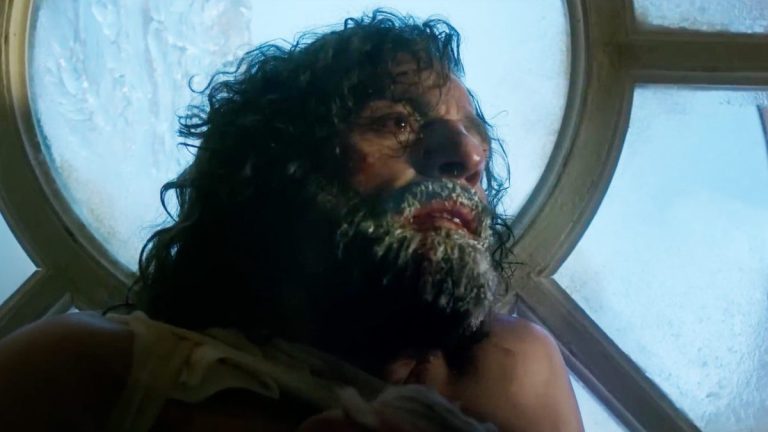
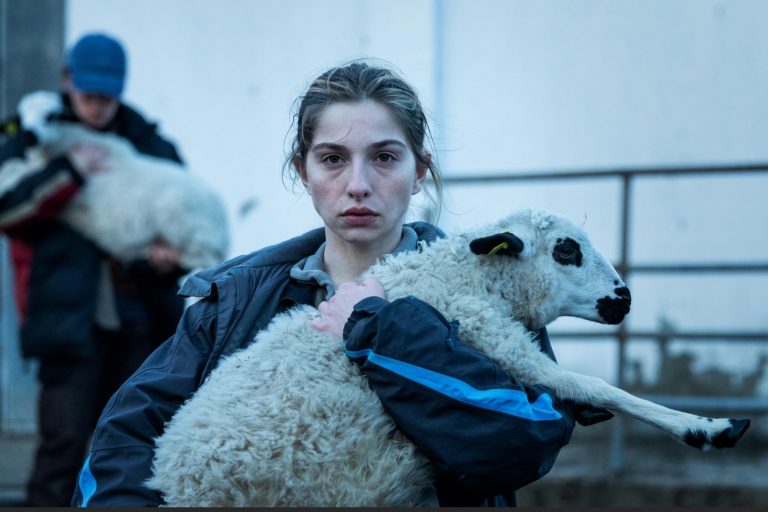
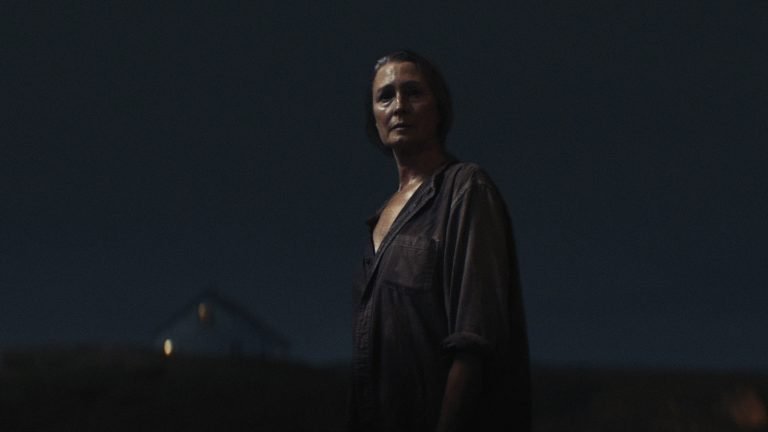
![Long Weekend [2021] Review: A Unique, Albeit Unfulfilling, Rom-Com](https://79468c92.delivery.rocketcdn.me/wp-content/uploads/2021/08/Long-Weekend-1-768x432.jpg)
